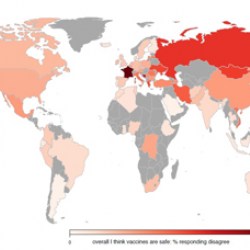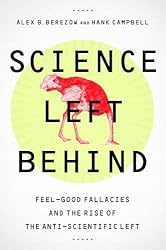
Despite the public shaming of anti-vaxxers, the anti-vaccine movement remains fairly strong in America. Yet, it has nothing on the anti-vaxxers in France, a country where over 40 percent of its citizens believe vaccines are unsafe, according to a global survey published in EBioMedicine.
A group of universities commissioned the survey of 66,000 people across 67 countries to discover their views on whether vaccines are important, safe, effective, or compatible with their religious beliefs.
The European region contains 7 of the top 10 vaccine denial populations. French anti-vaccine sentiment (41 percent) was over 300 percent higher than the global average (12 percent) so even uneducated peasants in the developing world understand immunology better than French elites. Southeast Asia led in confidence. In Thailand, only 6 percent thought vaccines were harmful, Indonesia had 3 percent, while in Bangladesh only 1 percent thought vaccines were unsafe.
Study lead author, Dr Heidi Larson from the London School of Hygiene & Tropical Medicine, said in a statement, "It's striking that Europe stands out as the region most skeptical about vaccine safety. And, in a world where the internet means beliefs and concerns about vaccines can be shared in an instant, we should not underestimate the influence this can have on other countries around the world."
It's actually not that striking. While the United Kingdom was once the hotbed of fear and doubt, with their 1990s spearheading of both "Frankenfood" hysteria and giving credence to claims that vaccines cause autism, France has become the place to be for environmental scaremongering. When Gilles-Eric Seralini set out to try and prove that the pesticide Roundup, or GMOs, or both, causes cancer in rats, France is where he did it. They ban GMOs, they even think cell phones cause cancer and that the International Agency for Research on Cancer is still a neutral body for the public good.
What doesn't explain the anti-vaccine sentiment? Religion, which is the go-to demographic to blame in America, even though "philosophical" (non-religious) exemptions in America's anti-vaccine leader, California, outnumber religious exemptions 100 to 1. Iran is regarded as a nation full of religious fundamentalists yet, with the margin of error included, could lead the world in people who agreed that vaccines are important. Meanwhile, Italy, which gave birth to the modern atheist movement, was down near the bottom. In Mississippi, one of the most religious states in America, vaccine uptake is nearly 100 percent.
Across all countries, who accepts vaccines the most? Old people.
They remember smallpox, they all knew someone with polio, and they don't have fond memories of chickenpox or measles the way residents of Marin County and Humboldt think their children will.
NOTE:
(1) France was followed by Bosnia & Herzegovina (36%), Russia (28%), and Mongolia (27%.) Greece, Japan and Ukraine all had 25%.
Citation: Heidi J Larson, Alexandre de Figueiredo, Zhao Xiahong, William S Schulz, Pierre Verger, Iain G. Johnston, Alex R Cook, Nick S Jones,'The State of Vaccine Confidence 2016: Global insights through a 67-country survey', EbioMedicine. DOI: 10.1016/j.ebiom.2016.08.042



